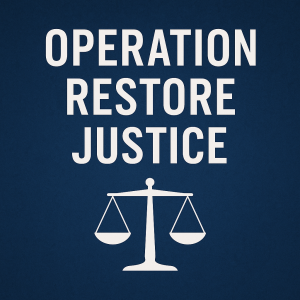Surrogacy is often celebrated as a modern solution for individuals and couples unable to conceive naturally. However, behind the often idealized picture of surrogacy, there are serious concerns that need attention. One of the most pressing issues is the lack of stringent vetting and background checks on commissioning parents. While the surrogacy process aims to create families, there are troubling cases where individuals with questionable pasts, including those with criminal histories, can exploit these systems to gain custody of children.
The Increasing Role of Surrogacy in Modern Families
Surrogacy has gained popularity over recent decades, as it provides a pathway for same-sex couples, infertile couples, and individuals who are unable to carry a child. The process involves a surrogate mother carrying the baby to term after being implanted with embryos, often created using in vitro fertilization (IVF).
The appeal of surrogacy lies in its ability to bypass biological limitations, allowing people to experience parenthood. It also offers an option for those who may face discrimination in adoption systems, such as same-sex couples. However, as the demand for surrogacy increases, so too does the potential for abuse within the system.
The Lack of Oversight and Its Consequences
Unlike adoption, where prospective parents undergo comprehensive background checks, surrogacy processes are often less regulated. This lack of oversight leaves the door open for individuals with criminal histories or dangerous backgrounds to participate in the process. One particularly disturbing case highlights this vulnerability.
Case Study: A Homosexual Couple’s Controversial Custody Battle
Logan Riley and Brandon Keith Mitchell, a couple from Seven Valleys, Pennsylvania, raised significant public attention when they used surrogacy to gain custody of a baby boy. In 2020, the couple initiated a fundraising campaign on GoFundMe, seeking money from strangers for their surrogacy journey. By 2023, after successfully creating embryos through an egg donor program, they found a family friend who offered to serve as the surrogate mother for their child.
Initially, the couple’s actions seemed harmless and motivated by their desire to expand their family. However, the situation took a dark turn when it was revealed that Brandon Mitchell, one of the intended parents, was a convicted pedophile.
In 2016, Mitchell was convicted of multiple serious crimes, including child pornography possession, endangerment of children, and corruption of a minor. These offenses occurred while he was employed as a high school chemistry teacher. Mitchell’s abuse of his position of trust led to inappropriate and explicit communications with a minor student, including requests for nude pictures and sexual videos. These actions, coupled with a substantial number of incriminating text messages, were discovered during an investigation.
Despite being a pedophile, Mitchell’s conviction did not prevent him from pursuing surrogacy, an area where background checks are lax. This loophole allowed him to secure custody of the child, despite his status as a registered sex offender.
The Role of Surrogacy in Facilitating Access for Criminals
The issue with Mitchell’s case is not unique. It highlights a larger problem with surrogacy regulations, which do not always prioritize the safety of the children being brought into these homes. In contrast to adoption, which typically involves an extensive background check on prospective parents, surrogacy regulations vary greatly from state to state. In some cases, the vetting process for surrogate parents is virtually nonexistent, leaving children vulnerable to individuals who would otherwise be disqualified from adoption due to their criminal histories.
As the legal framework for surrogacy continues to evolve, there is a pressing need for comprehensive vetting procedures that mirror those of adoption. Without these safeguards, surrogacy risks becoming a loophole for individuals who might not have been able to adopt through traditional channels. This problem extends beyond isolated incidents, with experts raising concerns about the long-term implications for children born via surrogacy to individuals with criminal backgrounds.
The Need for More Stringent Laws and Safeguards
The case of Brandon Mitchell and others like it underline the urgent need for reform in surrogacy laws. While many surrogacy programs focus on the medical and financial aspects of the process, there is a glaring lack of attention to the background of the parents involved.
Advocates for stronger regulations argue that surrogacy agencies must implement stricter background checks, similar to those required in adoption. These checks should include criminal background screenings, psychological evaluations, and other safeguards to ensure that parents with a history of abusive behavior are not granted custody of vulnerable children.
Further, there needs to be greater transparency in the surrogacy process, with agencies required to disclose any criminal history or other potentially harmful information about the commissioning parents. This would help ensure that children are placed in homes that are both safe and nurturing.
Why the Push for Stricter Surrogacy Regulations Matters
The stakes of ensuring safe surrogacy practices cannot be overstated. While surrogacy can be an invaluable tool for families who cannot otherwise conceive, it is crucial that we take steps to protect children from potential harm. This includes preventing convicted criminals, especially sex offenders, from gaining access to children through surrogacy.
Experts in child welfare emphasize that the lack of regulation in surrogacy is not just a legal issue; it is a moral one. Every child deserves to be placed in a safe, supportive environment, free from the risk of abuse or exploitation. The current gaps in surrogacy laws threaten to compromise this fundamental right.
Recommendations for Parents and Advocates
For parents considering surrogacy, it is essential to do thorough research and choose agencies that prioritize safety and transparency. Ensure that any potential surrogate parents undergo comprehensive psychological evaluations and background checks.
For advocates of child welfare, it is critical to push for legislative reforms that strengthen surrogacy regulations and provide more protection for children. By advocating for greater oversight and transparency, we can help safeguard future generations from the dangers posed by unregulated surrogacy.
The Broader Issue of Child Welfare and Protection
The problem highlighted by Mitchell’s case is part of a larger issue of child welfare and protection. It is not just surrogacy that requires reform but the entire system that governs how children are placed in homes. Adoption, fostering, and surrogacy all involve significant risks, and it is crucial that we take steps to address these challenges.
Children who are placed in homes should not only be provided with love and care but also the protection of the law. Ensuring that children are placed in safe environments, free from the risk of exploitation or abuse, is a responsibility we must take seriously.
Conclusion: The Need for Reform
As surrogacy continues to grow in popularity as a method of family-building, we must take steps to ensure that the process is safe for children. This includes implementing stricter vetting and background checks for commissioning parents and ensuring that surrogacy agencies are held accountable for their actions. We must put the well-being of children above all else, ensuring that they are placed in loving, safe, and responsible homes. The time for reform is now, and we must act before more children are placed in harm’s way.




